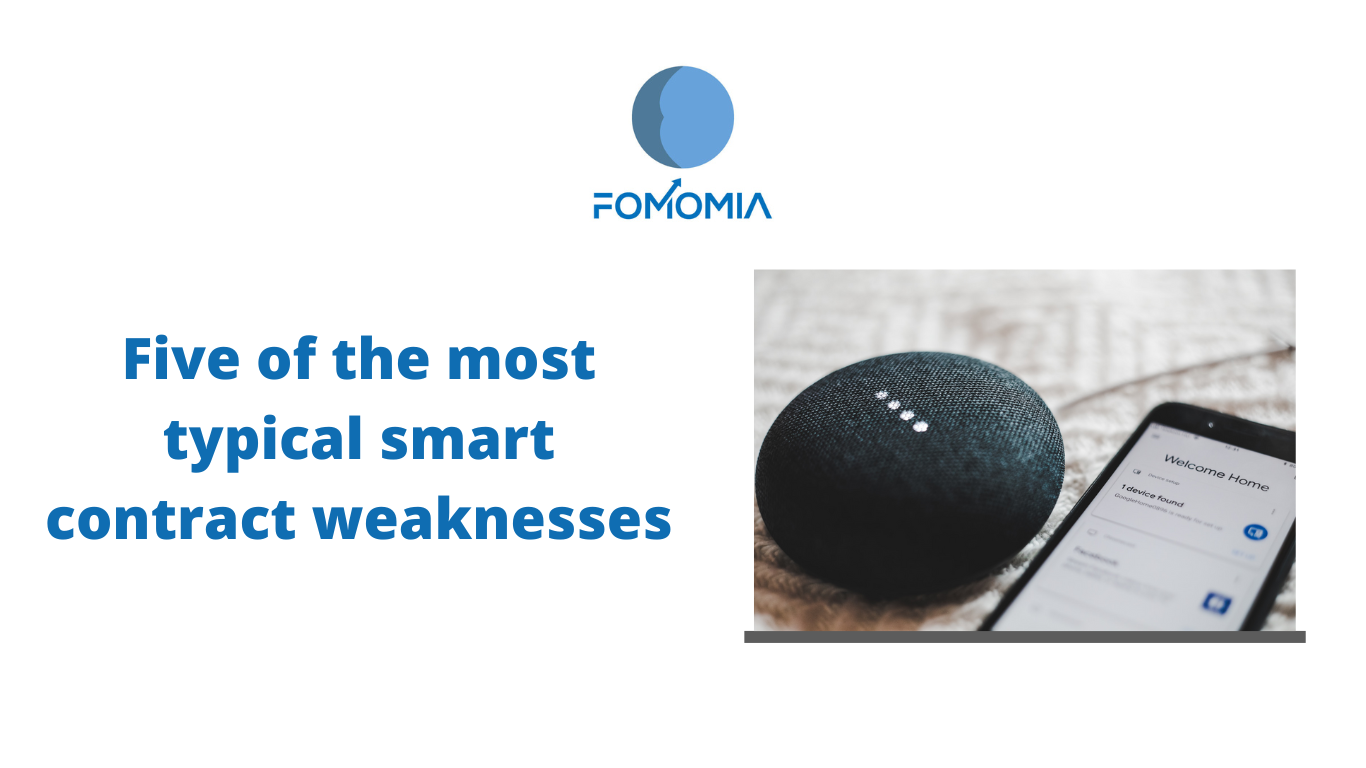Five of the most typical smart contract weaknesses
Smart contracts are computer programs that are permanently implemented on a blockchain. They can be utilized for a number of things, including contract management, asset management, and the introduction of new applications.
While smart contracts provide a number of advantages, they are also prone to a number of flaws. Attackers may take advantage of these flaws to rob money, interfere with the performance of contracts, or seize control of smart contracts.
Five of the most typical smart contract flaws are listed below:
Logical Mistakes
The most frequent kind of smart contract vulnerability is due to logical mistakes. Typographical mistakes, coding mistakes, or poor design can all result in them. Attackers may be able to steal money, interfere with the operation of smart contracts, or even seize control of them thanks to logic mistakes.
Flaws in security
Code injection, buffer overflow, and cross-site scripting (XSS) vulnerabilities are just a few of the security flaws that smart contracts are susceptible to. Attackers may use these flaws to rob money, prevent smart contracts from working properly, or even take over smart contracts.
Design errors
When smart contracts are improperly designed, vulnerabilities can result. For instance, smart contracts without audit procedures can be targeted for theft. Without recovery measures, smart contracts are susceptible to takeover attempts.
Audit mistakes
Security professionals can audit smart contracts to find flaws. Even audited smart contracts may nevertheless have security flaws. This is due to the complexity of smart contracts, which makes it challenging to find every vulnerability.
User Mistakes
Smart contract users are also susceptible to errors that result in weaknesses. Users may enter incorrect keys, send money to the wrong addresses, or engage in malevolent smart contracts, for instance.
To find and reduce smart contract vulnerabilities, a number of actions can be taken. These consist of:
Carrying out security checks
Security professionals should examine smart contracts to find any flaws. Numerous vulnerabilities, including logic, security, and design vulnerabilities, can be found with the use of security testing.
Putting Audit Mechanisms in Place
Incorporating audit tools into smart contracts will enable users to confirm the reliability of the contracts. Both user and design vulnerabilities can be found with the aid of audit mechanisms.
Utilizing Smart Contracts with Care
Developers of smart contracts should utilize solidly constructed contracts that are secure against known flaws. To ensure that their smart contracts are secure, developers should speak with security professionals.
Users' Education on Smart Contracts
Users of smart contracts should receive education on these dangers and how to reduce them. Users need to be aware of typical smart contract flaws.
By adhering to these suggestions, you can aid in defending your money and privacy from intruders.


